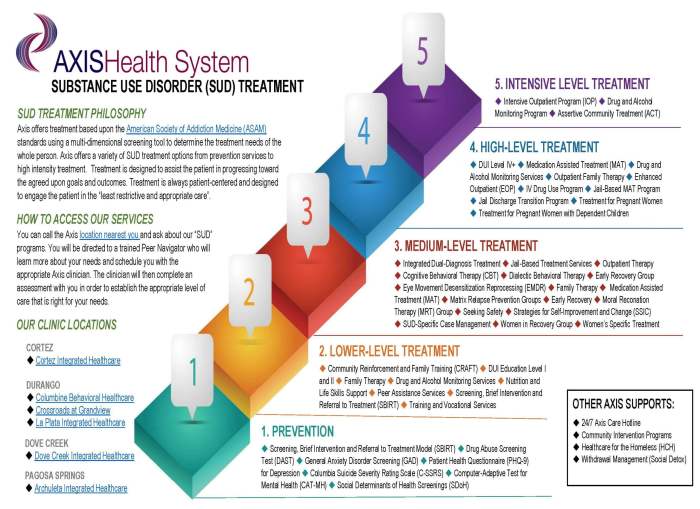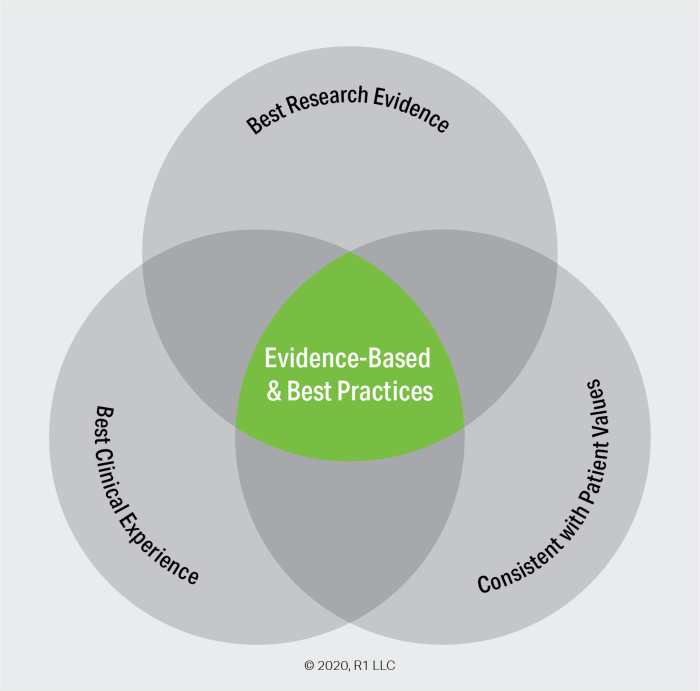SUD treatment – Substance Use Disorder (SUD) treatment is a crucial topic that demands attention, and this article delves into the subject with a comprehensive exploration of evidence-based approaches.
SUD, characterized by the compulsive use of substances despite negative consequences, affects individuals and society at large. Understanding its prevalence, causes, and risk factors is essential for developing effective prevention and treatment strategies.
Substance Use Disorder (SUD) Overview: SUD Treatment
Substance use disorder (SUD) is a chronic, relapsing brain disease that is characterized by compulsive drug seeking and use, despite negative consequences. It is a complex disorder that involves biological, psychological, social, and environmental factors.
SUD can have a devastating impact on individuals, families, and communities. It is a leading cause of preventable death and disability worldwide. In the United States, SUD is estimated to cost the economy over $740 billion annually.
Types of SUD

There are many different types of SUD, each with its own unique symptoms and effects. Some of the most common types of SUD include:
- Alcohol use disorder
- Opioid use disorder
- Stimulant use disorder
- Cannabis use disorder
- Hallucinogen use disorder
- Inhalant use disorder
Causes and Risk Factors for SUD

The exact cause of SUD is unknown, but it is thought to be caused by a combination of biological, psychological, and social factors. Some of the risk factors for SUD include:
- Genetic predisposition
- Mental health disorders
- Trauma
- Environmental factors
Treatment Options for SUD
There are a variety of evidence-based treatment options available for SUD. These treatments can help individuals to stop using drugs, improve their health, and rebuild their lives. Some of the most common types of SUD treatment include:
- Behavioral therapy
- Medication
- Support groups
- Residential treatment
Recovery from SUD
Recovery from SUD is a long and challenging process, but it is possible. With the right treatment and support, individuals can achieve lasting recovery. Recovery involves more than just stopping drug use. It also involves addressing the underlying causes of SUD and developing healthy coping mechanisms.
Prevention and Education, SUD treatment

Preventing SUD is essential to reducing the burden of this disease on individuals, families, and communities. There are a number of effective prevention strategies available, including:
- Public health campaigns
- Education programs
- Community outreach
Final Conclusion
Recovery from SUD is a challenging but achievable goal, and this article emphasizes the importance of relapse prevention and long-term support. By shedding light on the complexities of SUD, we can empower individuals and communities to make informed decisions and promote overall well-being.
FAQ Guide
What are the most common types of SUD?
Alcohol, opioid, and stimulant use disorders are among the most prevalent types of SUD.
What are the warning signs of SUD?
Changes in behavior, such as increased substance use, neglecting responsibilities, and relationship problems, can indicate SUD.
How effective is SUD treatment?
Evidence-based SUD treatments can significantly improve outcomes, including reducing substance use, improving mental health, and enhancing overall well-being.